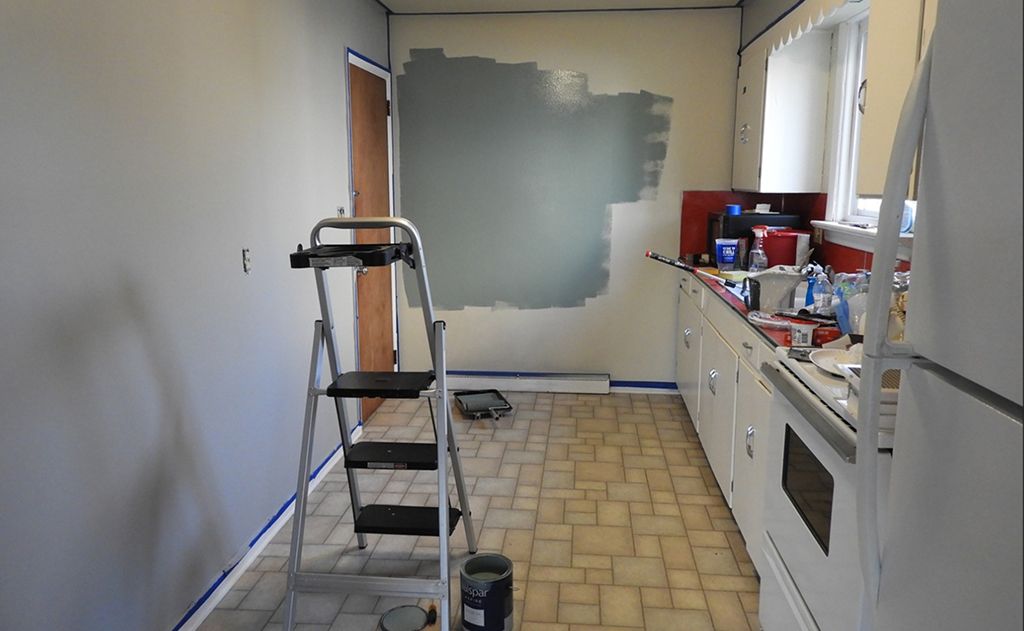Buying a home today is more complex than it was five years ago, as the market was gaining intensity – favoring sellers and their interests. Despite the pendulum shifting in the direction of homebuyers, there are those who are overwhelmed by the intricate process of a home purchase. Yet, some of the most intimidated are first-timers, who have never pursued homeownership before. Luckily, there are several programs available that can provide assistance to make this journey a little easier for first-time homebuyers. Below, we’ll attempt to present some of the challenges, resources available and the steps one should take as they seek homeownership for the first time.
The current market presents a myriad of challenges for first-time homebuyers. With rising home prices and limited inventory, finding an affordable home can be daunting. Buyers are still over-bidding now and again, and coming up short in multi-offer situations. In Pennsylvania, home prices have continued climbing, with a median sales price of $216,249 (up 4.2% year-over-year). A housing supply issue exists in the state as well, listings are down 23.4% year-over-year.* Additionally, competition from cash buyers and investors can make it difficult for first-time buyers to secure a home. Furthermore, strict lending requirements and high down payments can also pose challenges for those looking to purchase. The latter might not apply unless loan options such as FHA, VA, USDA and the like are not a possibility. To account for these challenges, first-time homebuyers should do thorough research, work with a trusted REALTOR®, and if they’re serious about shopping for a home in the current climate, be ready to make competitive offers at a moment’s notice. It may also be helpful to consider alternative financing options and be open to exploring different types of homes or different areas (i.e. alternate school districts, check out rural living over suburban or city living).
There’s good news for those who may have been classified as first-timers in the past, but haven’t purchased a home in over thirty-six months. They would likely be labeled as first-time homebuyers once again. In the industry, lenders do have various indicators, differentiating themselves from others in the business. These requirements for buyers can vary from institution to institution. Some of the typical criteria for first-time buyers includes a steady income, where a job history of two or more years must be validated, a clean credit history, a credit score of 620 or more, a debt-to-income ratio below 43% and a loan down payment of at least 3%. Furthermore, if you presently own a mobile home or have owned one within that three-year window, lenders will often grant you first-time buyer status since the rules for mobile-home ownership are unique.
Education in life goes a long way, and prospective buyers would do well to study up. The best way for first-time homebuyers to get educated on available programs is to do their research. First, talk to your real estate professional. An experienced REALTOR® has dealt with your situation before or one that was similar. Your agent will provide you with a roadmap of several avenues to follow, including homebuyer education classes/seminars as well as utilizing various online resources. These services can help buyers figure out their loan options by providing information on different mortgage programs, down payment assistance programs and other financial assistance options. It’s important for first-time homebuyers to take advantage of these resources to ensure they make informed decisions and find the best program for their individual needs. In Pennsylvania, there are programs geared toward assisting first-time homebuyers such as the Keystone Home loan program, the Keystone Advantage Assistance loan program and the HOMEstead program, just to name a few. Each state has programs in place to assist those who can qualify as first-time buyers. Moreover, there are local programs, such as NeighborWorks, who support buyers as they journey toward homeownership.
Buyers should expect help from their REALTOR® as it pertains to available first-time homebuyer assistance programs. After all, that’s the support real estate professionals provide – to counsel their clients in making the best decisions at each stage of their progress. If their agent doesn’t have the answers, they’ll direct them to the experts who do. These assistance programs can be complicated to navigate, but REALTORS® have the knowledge and expertise to guide buyers toward success. They can provide information about the eligibility requirements, the application procedures in addition to the potential benefits of these programs. They can also assist with finding the right program for a buyer’s specific needs and helping them gather all the necessary documents and information. With their lead, buyers can feel more confident and informed about taking advantage of these valuable resources to make their dream of homeownership a reality.
First-time homebuyers, listen up! As thrilling as it is to finally have a place to call your own (and it is), it’s important to manage your budget wisely and ensure you can qualify for a loan. Trust us, you don’t want to end up house-rich, cash-poor, where you’ve pumped all this equity into your home, but you’re struggling to pay your bills month after month, and regretting the decision you made to purchase. Before you buy, do a test run and start by setting a realistic budget and stick to it. Consider all expenses, including homeowners insurance, taxes, mortgage insurance (if applicable), utilities, maintenance and other debts you may have. When the time comes to acquire a loan, do your homework and shop around for the best interest rates and programs to suit your needs. Don’t immediately settle on the first lender you encounter. Don’t be afraid to negotiate and be aware of any hidden fees (such as points). Remember, a little bit of budgeting and savvy negotiating can go a long way in making your dream home a reality.
The good news is more help is on the way for homebuyers. The day when buyers can pay market value for a home without constant interference from other buyers or pay below market value in efforts to get a deal will become a reality once again. A time when buyers won’t feel rushed into making hasty decisions about homeownership is on the horizon. In the meantime, do your search and thoroughly understand all aspects of homeownership before making any decisions. With the right guidance and resources, purchasing your first home can be a rewarding and exciting experience. Happy house hunting! Take a look at our houses for sale in Clarks Summit PA.
* Latest Pennsylvania Association of REALTORS® Housing Report – Sept 2023
Other first-time homebuyer resources:
8 Steps You Should Take When Purchasing Your First Home
First-Time Homebuyer Tips



